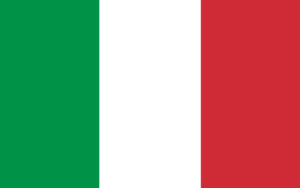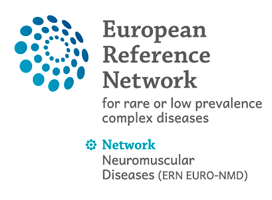Contact
Michela Onali
- Member of the Patient Advisory Board

Michela Onali’s advocacy work for GNE Myopathy began in 2014 while living in Canada, allowing her to develop a broad knowledge and have a direct look into the reality and challenges faced by the RD community not only in Europe but also in US and Canada, from national health policies to R&D and approaches to rare diseases in general. After moving back to Europe, she completed the EURORDIS Summer and Winter Schools, the Nutrimet School on Metabolomics and the EUPATI training course. She is involved in working groups aimed at implementing patient engagement in research development and decision-making. Michela Onali advocates to facilitate dialogue, report on patients’ needs, guarantee effective and clear information, and to define research priorities while promoting the fundamental role of Natural History Studies and FAIR data in clinical trial design and therapy development.
Contact me at pab@ern-euro-nmd.eu
Tell us a little bit about yourself
I have always been a curious person with a proactive personality and predisposed to exploration and discovery. I have a background in cross-cultural mediation and formal and non-formal education, so I’ve always enjoyed engaging in cross-border collaboration opportunities aimed at facilitating knowledge sharing and mutual learning.
The day I received the diagnosis of GNE Myopathy, a rare adult onset muscle disease, I started an endless online search. Three weeks later I got on the plane for the GNEM Natural History Study and wondered: “What if I did not speak English and needed more accessible information, what if I was not ready or in the position to take action for my disease, what if I wanted to help other patients and contribute to change”.
Unexpected or uncertain events have in fact always resulted in a sense of wonder and a desire to explore opportunities such as the EURORDIS initiatives and Summer and Winter Schools which contributed to shape my role as patient representative.
Getting actively involved for the GNEM and rare disease community came as a natural process, and my learning experience has now grown into a mutual learning process, a joint effort and a shared need to work together. I am involved in different working groups centred around patient engagement in research and decision-making, and currently participating in the EUPATI training course. My discovery process continues every day and keeps empowering me to take collaborative actions for real change in care and treatment for rare diseases.
What is your role in EURO-NMD?
I closely work with the other patient representatives and the network to fully integrate patient voice and equal partnership in decision making, guarantee diversity of patients is always taken into account, and representativeness of the broad patient community is ensured.
I help to identify and develop opportunities where patients can gain, use and transfer knowledge, but also feel integrated and act as full partners in research development and decision making. I further help to identify gaps and barriers

